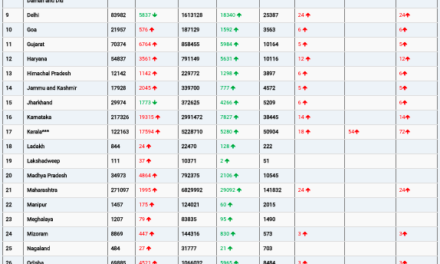A new study published in the Journal of the Endocrine Society suggests that vitamin D supplementation can help lower blood pressure in older adults with obesity, potentially offering a simple, non-invasive way to address hypertension in this vulnerable population.
The research, led by a team of scientists from the American University of Beirut, examined the impact of vitamin D3 supplementation on blood pressure in overweight or obese individuals aged 60 and older. The study explored whether daily doses of vitamin D3, combined with calcium, could lead to improvements in systolic and diastolic blood pressure, particularly in those with higher body mass index (BMI).
Background on Vitamin D and Hypertension
Vitamin D deficiency is common among older adults and has been linked to various health issues, including cardiovascular diseases and high blood pressure. Previous observational studies have suggested that low levels of vitamin D could increase the risk of hypertension, but clinical trials have yielded mixed results.
Some trials have shown that vitamin D supplementation can help lower blood pressure in older or hypertensive populations, while others, particularly in younger or healthier groups, have not seen significant effects. Researchers believe these mixed outcomes could be due to variations in study design, dosage, or participant characteristics.
The Study Design
The latest study sought to clarify these inconsistencies by testing two different doses of vitamin D3 (standard and higher) in combination with calcium. The researchers focused on older, overweight adults, who are at higher risk for both hypertension and vitamin D deficiency.
Participants were randomly assigned to one of two treatment groups: one received a standard dose of 500 IU of vitamin D3 daily, along with calcium citrate, while the other received a high dose of 3750 IU daily. The participants’ blood pressure was measured at baseline and after six and twelve months.
Study Results
The findings were promising. Overall, both systolic and diastolic blood pressure decreased significantly in the high-dose group, with an average reduction of 4.2 mmHg in systolic blood pressure and 3.02 mmHg in diastolic blood pressure. The low-dose group also experienced reductions in blood pressure, but the changes were not statistically significant.
Notably, participants with a BMI over 30—classified as obese—saw the most significant improvements in blood pressure. These effects were even more pronounced in the high-dose vitamin D3 group. In contrast, individuals with a BMI below 30 showed minimal changes in blood pressure, regardless of the dose.
The study also revealed that hypertensive participants, especially those taking antihypertensive medication, saw more substantial reductions in both systolic and diastolic blood pressure, indicating that vitamin D supplementation may have a more pronounced effect in individuals already managing high blood pressure.
Implications for Treatment
The results suggest that vitamin D supplementation could be an effective adjunct to managing hypertension in older, overweight individuals, especially those with a higher BMI or pre-existing hypertension. While both the low and high doses showed some blood pressure-lowering effects, the researchers did not find a clear dose-dependent relationship, meaning that the benefits were generally consistent across the different levels of supplementation.
“Vitamin D and calcium supplementation could represent a simple, accessible therapeutic strategy for improving blood pressure in elderly individuals at risk for hypertension, particularly those with obesity,” said Dr. Ghada ElHajj Fuleihan, one of the study’s lead authors.
Conclusion
The study contributes to the growing body of evidence suggesting that vitamin D may play an important role in managing high blood pressure in older adults. While the findings are encouraging, the researchers caution that further studies are needed to fully understand the long-term effects and optimal dosages of vitamin D supplementation.
For elderly individuals with obesity or hypertension, vitamin D supplementation, when combined with calcium, could be a promising approach to improving overall cardiovascular health.
For more information on the study, visit the Journal of the Endocrine Society at this link.
Journal Reference: Rahme, M., AlShaar, L., Tamim, H., & ElHajj Fuleihan, Ghada. (2024). Blood Pressure Decreases in Overweight Elderly Individuals on Vitamin D: A Randomized Trial. Journal of the Endocrine Society, 8(12), bvae168. doi:10.1210/jendso/bvae168












